- Home
- Parnell Hall
5 Client
5 Client Read online
Praise for Parnell Hall’s mystery Client
“Mr. Hall slyly wins our respect for Stanley’s intelligence and perseverance—qualities that give him the edge over his bolder and brawnier competition. And the last laugh, too.”
—Marilyn Stasio, New York Times Book Review
“Hall deftly mixes mirth and murder with a dash of wry philosphy, and his series hero ... is a never-failing delight.”
—The San Diego Union
“Good writing and plenty of laughs make Client a winner.”
—Phil Thomas, Associated Press
“The plots are interesting, the locales authentic, the dialogue witty, and the characters real. These are exceptionally good mysteries. Don’t miss them!”
—Mystery News
“Hall serves up another highly readable mystery starring one of the most unusual private eyes ever to take a case.”
—Booklist
Client
Parnell Hall
Copyright © 1990, 2011 by Parnell Hall
Published by Parnell Hall, eBook edition, 2011.
e-reads.com, 2003
ISBN:978-0-759215-60-3
Published by NAL-Onyx, 1991.
ISBN:0-451-40249-9
Orginally published by Donald I Fine, Inc., 1990.
ISBN:978-1-556111-69-3
All rights reserved. No part of this book may be reproduced in whole or in part without written permission from the author, except by reviewers who may quote brief excerpts in connection with a review in a newspaper, magazine, or electronic publication; nor may any part of this book be reproduced or transmitted in any form or by any means, electronic or mechanical, without permission in writing from the author.
ISBN (Kindle): 978-1-936441-40-2
ISBN (ePub): 978-1-936441-41-9
Cover design: Michael Fusco Design | michaelfuscodesign.com
For Jim and Franny
Table of Contents
Chapter 1
Chapter 2
Chapter 3
Chapter 4
Chapter 5
Chapter 6
Chapter 7
Chapter 8
Chapter 9
Chapter 10
Chapter 11
Chapter 12
Chapter 13
Chapter 14
Chapter 15
Chapter 16
Chapter 17
Chapter 18
Chapter 19
Chapter 20
Chapter 21
Chapter 22
Chapter 23
Chapter 24
Chapter 25
Chapter 26
Chapter 27
Chapter 28
Chapter 29
Chapter 30
Chapter 31
Chapter 32
Chapter 33
Chapter 34
Chapter 35
Chapter 36
Chapter 37
Chapter 38
Chapter 39
Books by Parnell Hall
1.
I HAVE BAD TEETH.
I guess I was fated to have bad teeth. See, I’m on the far side of forty, which means I grew up before the age of enlightenment. When I was a boy, people didn’t know what they know now. Even the high school coaches, people whose job it supposedly was to tune and mold our fine young bodies, knew no better. The basketball coach gave us gum to chew during the game, and soda pop after. And this was in the days before Trident and Diet Pepsi—the effect was like soaking our teeth in a concentrated solution of sugar-water.
Things weren’t any better in terms of prevention. As I’ve said, public awareness was limited at best. Fluoride had arrived, but was still perceived by many to be a communist plot to pollute our water system. As a result, Crest toothpaste was fighting an uphill battle to convince the public that it was, indeed, “an effective decay-preventive dentifrice that can be of significant value when used in a conscientiously applied program of oral hygiene and regular professional care.” That was a bit of a mouthful for anyone, with or without good teeth, and not everyone was buying it. Crest did better after they shortened the slogan to, “Look Ma, no cavities!” God how I hated that exuberant, smiling eight-year-old kid who grinned his pearly whites at me on the one snowy channel our secondhand black and white TV could pick up in those days. No cavities. I remember when I was twelve years old going to the dentist, and, “Look Ma, eighteen cavities.”
Eighteen.
It took four visits to fix ’em all. And the fourth, wouldn’t you know it, was my two front teeth, which miraculously, had never been affected before. So all my previous fillings had been silver, and I had four anxious weeks to fantasize what my impending sex life would be like with ugly metallic fillings forever messing up my endearing smile. Which didn’t happen, of course. My front teeth were filled with porcelain, or something white, which didn’t look all that bad, and though I was an awkward, confused, nervous adolescent and my sex life was no great shakes anyway, I didn’t have my dentist to blame for it.
My dental problems continued into my twenties. I never had eighteen cavities again, but I sure had a good, steady string of ’em. I also gained wisdom teeth, if not wisdom, and the subsequent painful extractions, including one from a Spartan sadist who didn’t believe in Novocain. “Take aspirin,” he counseled me, when I gurgled the word “codeine” through bloodied mouth after twenty minutes of cutting and slicing to retrieve broken off roots. I took, as I recall, the better part of a fifth of scotch, and never went to him again.
By the time I hit my thirties, all of my teeth that had not been extracted had been so extensively drilled and filled that it seemed to me if I got any more cavities, there wouldn’t be anything left to hold the teeth together.
There wasn’t.
It was in my thirties that I first became introduced to crowns. “Gonna need a crown,” my dentist said, nodding his head judiciously, and quickly dispelled any thoughts of impending royalty by explaining what he meant was that there wasn’t enough tooth left to hold a filling, and he had to file the sucker way down and put a cap over it. The cap was an artificial tooth. It was made of metal, sometimes with porcelain on top, in case it was near enough the front of the mouth to show. It didn’t taste all that great, but what the hell, it was better than going straight to dentures, and as I reached the end of my thirties and one cap followed another, I came to the happy realization that soon all of my teeth would be metal, and there would be nothing left to go wrong.
Naive me.
Welcome to the wonderful world of periodontics.
A sudden excruciating ache in one of my long-since capped molars sent me rushing to my dentist, who immediately diagnosed an incredible abscess. Teeth, I learned, even capped teeth, have roots. And these roots, if not properly nurtured, can decay, erode, suffer bone loss, abscess, and seriously endanger the future of an otherwise perfectly fine capped tooth.
Needless to say, the abscess was but a symptom of the problem. All of my teeth were in this precarious position. What I needed, the periodontist told me, with what I thought was ill-disguised glee, was immediate and total oral surgery. Of course, there was no coercion used to impel me to do this. There was an alternative. The alternative was to do nothing and let all my teeth fall out.
I opted for the surgery. In doing so, I learned the reason for the periodontist’s glee. The charge for the surgery was thirty-two hundred dollars.
This posed a bit of a problem. I am not particularly wealthy. In fact, I am not even solvent. I have a wife and kid to feed. And I live in New York City, where things are not particularly cheap.
And I’m self-employed. Stanley Hastings, Private Investigator. Don’t take that the wrong way. I don’t carry a gun or have car chases, or do any of that other stuff that immediate
ly springs to mind when someone mentions P.I. But setting that aside, the fact is I’m self-employed. Which means I have to carry my own health insurance. And it’s minimal. And dental isn’t on it.
My thirty-two hundred dollar gum surgery required a bank loan. I’m paying my mouth off on time. And if that weren’t bad enough, it turns out the surgery is just the first step. Then there’s the maintenance. In order to keep my teeth from falling out, I have to go to the periodontist’s every three months to have my gums retreaded at eighty-five bucks a whack by one of the bevy of attractive young hygienists kept for that purpose. I suppose I shouldn’t complain. I’m sure in New York City there are places where I’d have to pay much more than eighty-five bucks to have a pretty girl hurt me.
Be that as it may, no matter what I do, the debt just seems to keep getting bigger and bigger, and my chances of ever paying it off smaller and smaller.
Which is why I didn’t throw Marvin Nickleson out of my office.
2.
“I HAVE A PROBLEM.”
Music to the ears of a private detective. But then, I’m not your average private detective. In fact, I’m hardly a private detenm ctive at all. I chase ambulances for the law firm of Rosenberg and Stone. All that entails doing is interviewing the accident victims who call in response to Richard Rosenberg’s TV ads, signing them to retainers, and then photographing the scenes of their accidents.
But I wasn’t ready to lay all that on Marvin Nickleson just yet. I contented myself with a noncommittal, “Oh?”
We were sitting in my office on West 47th Street. It was ten o’clock on a Monday morning. I’d stopped by my office to pick up my mail and check my answering machine before heading out on my morning rounds. I got out of the elevator and there he was, standing in front of my door. All five foot four of him. That’s an approximation, by the way, and like most of my observations, probably inaccurate. Suffice it to say, he struck me as short. He was a slight little man with curly red hair, and a thin, stringy, red moustache. He wore round, steel-rimmed glasses. He was dressed in a suit and tie, as I was, but as mine was thrown together catch as catch can from an ever-thinning wardrobe, his was tailor-made and right fine.
I was surprised to see him waiting there. I was more surprised to find out he was waiting for me. I unlocked the door, let him in, and uncluttered a chair for him, since my office is not set up to receive clients, since I have none.
And there we sat. As far as I was concerned, my “Oh?” was as much of a contribution to the conversation as I was required to make. As I said, I’m not used to receiving clients, and if this man was gonna act like one, he was gonna have to carry the ball.
He did.
“It’s my wife,” he said.
I sighed. It appeared more was expected of me after all. After a moment’s hesitation I ventured, “Yes?”
Apparently that was the right thing to say, because he immediately nodded in agreement. “Yes,” he said. “And you’re a private detective, right?”
I hesitated. There were so many ways to answer that question. See, I don’t consider myself a real private detective. But I didn’t feel like launching into a lengthy explanation. “Yes,” I said.
Once more I’d made the correct response. He nodded his head up and down again. “That’s why I’m here. I need to hire a private detective.”
I figured I’d give it one more shot. “Why?”
I’d hit the right button. He nodded once, held up his hand and said, “All right. Here’s the picture. My wife and I are separated. Not divorced. Just separated. Maybe it’s my fault, maybe it’s hers, I don’t want to go into that, it’s not important, the fact is we’re separated.”
He stopped, tugged at his moustache. “And I don’t like it. I don’t like being separated. I want my wife back. You know what I mean?”
I knew what he meant. I just didn’t know what I was supposed to do about it. And the way things were going, I wasn’t sure if he was going to tell me.
Monosyllables had been doing O.K. for me. I decided to be daring and go for two. “Why me?”
He jerked his thumb. “I work right down the street. I’ve had business in this building before. I’ve seen your name on the directory. Stanley Hastings, Private Detective. I never hired a private detective before, so I didn’t know what to do. Then I remembered your sign.”
I sighed. My sign. That rang a big bell. It was my sign that had lured my first potential client into my office. I’d turned him down. Subsequently, he’d lost his life and his genitalia. In what order, I couldn’t tell you. Still, it was not a pleasant memory.
I decided to give up the hard-boiled, taciturn approach. “All right,” I said. “What do you want?”
“I told you. I want my wife back.” He tugged at his moustache again. “But that’s not what you mean, is it? You mean, what do I want you to do. Well, you gotta forgive me. I’ve just never done this before. I told you, my wife and I are separated. I’m looking for a reconciliation. She isn’t. She hangs up on me. She won’t return my calls. She’s gone back to using her maiden name.
“And ...” He paused and tugged at his moustache again. I began to wonder if it was so scraggly because he’d gradually tugged out all the hairs. He looked down at the floor and then looked up. “I think she’s seeing someone. And it kills me, and I want it stopped.”
I shifted restlessly in my chair, an action he interpreted correctly. “No, no,” he said. “I don’t expect you to stop it. That’s something I’ve got to do. I just want you to find out.”
I figured I’d had enough, but I figured I ought to let him finish his pitch. “What, specifically, is it you want?”
“All right,” he said. “Here’s the dope. My wife’s name is Monica. She’s gone back to her maiden name, which is Dorlander. She lives in an apartment at 413 East 83rd Street. It’s my apartment, I mean, my name’s on the lease, but now you’ll see Dorlander on the bell. When we separated, I was the one who moved out.” He smiled, ironically. “Of course.
“Anyway, my wife’s a lot younger than I am. She’s twenty-seven. She works for Artiflex Cosmetics Company on Third Avenue. She’s an executive there. One of those high-voltage, high-powered types. She makes close to sixty thousand a year. That’s also part of the problem. I only make forty.”
I said nothing. And for good reason. Working for Rosenberg and Stone, I make ten bucks an hour and thirty cents a mile. If I got forty hours a week, I’d be making twenty thousand a year, but the work isn’t steady, and I average twenty to thirty hours, tops.
“All right,” he said. “That’s the picture. I think she’s seeing someone. Maybe someone from the office, but maybe not. She may be seeing him during the day, she may be seeing him at night, I don’t know. The thing is, as an executive, she has long lunch breaks and can more or less plan her afternoon hours.
“So here’s the pitch. I don’t think she’s fooling around in the morning. If she is, well, she’s too smart for me on the one hand, and too screwed up on the other, there’s nothing I can do about it.
“But from lunchtime on ...” Here he gave his moustache a final furious tug and looked me in the eye. “I want you to stake out her office, starting at one o’clock. Pick her up when she leaves for lunch and see where she goes. If she’s seeing somebody from the office, you may strike paydirt in the afternoon. If not, you pick her up when she leaves work, tail her home, or wherever she goes. If she’s home and there’s nothing stirring by nine o’clock, you wipe it out, that’s your eight-hour shift. If there’s something shaking, you’re into overtime.
“Now, as I told you, all I want you to do is identify the bum. I’ll take care of him. But if they go to a motel, I want the whole schmear. License plate number, and the name they registered under. And whether they gave the right plate number on the register. If you can, a copy of the motel registration.
“I also want pictures.”
I looked at him. “I thought you wanted a reconciliation, not a divorce.”
&n
bsp; “I do. I do. But I’m not going to get anywhere until I know who I’m dealing with. And I’m never going to get anywhere with her until I’ve got some hard evidence to confront her with. She’ll just lie her way out of it. She’s good at it, believe me. When you see her, you’ll know.
“So, that’s all I’m asking for. I want the evidence, and I want the pix. I’ll take it from there.”
“But you don’t know for sure she’s seeing anyone.”
“That’s true.”
“And even if she is, this could take weeks.”
“Right.”
“And there’s no guarantees.”
“Of course. So what do you say?”
That was the point where I should have thrown Marvin Nickleson out of my office. Actually, that’s an exaggeration. In fact, for me it’s practically hyperbole. I am not a violent person by nature, and I would never actually throw anybody out of my office, even if I were physically capable of doing it. Show him the door would probably be a little more accurate.
And that’s what I sincerely longed to do. Marvin Nickleson’s case was straight out of a ’40’s grade B movie. It made me feel slimy just thinking about it. The whole thing reeked of sleaze.
But I have bad teeth.
And life is strange, and beggars can’t be choosers, and sometimes you have to do things you don’t really want to do. Which is why, in my mind, I’d already agreed to the employment.
I didn’t jump at it, however. I hedged.
“Say I do this,” I said. “There’s just one thing.”
“What’s that?”
“I can’t start today. I’d have to start tomorrow.”
He frowned. “Why?”
“I have other cases pending. I have to clear the decks.”
Which was true. If I took this case, I was gonna have to fit it in around my duties to Rosenberg and Stone, which wasn’t going to be easy. I must say I had severe reservations.
So did Marvin Nickleson. That didn’t suit his plans at all.
“I’d prefer you to start today,” he said.
“I understand. I just can’t do it.”

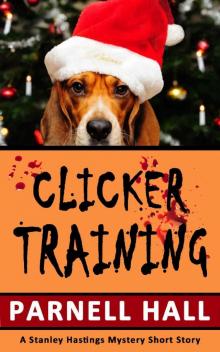 Clicker Training
Clicker Training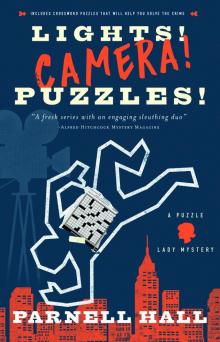 Lights! Camera! Puzzles!
Lights! Camera! Puzzles!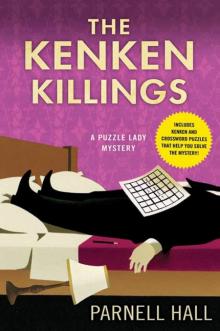 The KenKen Killings
The KenKen Killings 12-Scam
12-Scam The Puzzle Lady vs. the Sudoku Lady
The Puzzle Lady vs. the Sudoku Lady 2 Murder
2 Murder 7 Shot
7 Shot You Have the Right to Remain Puzzled
You Have the Right to Remain Puzzled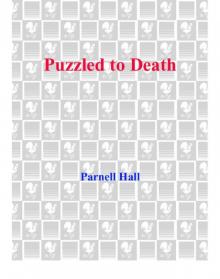 Puzzled to Death
Puzzled to Death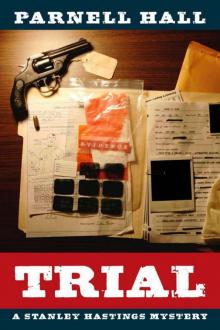 11-Trial
11-Trial The Witness Cat (Steve Winslow Mystery)
The Witness Cat (Steve Winslow Mystery) With This Puzzle, I Thee Kill
With This Puzzle, I Thee Kill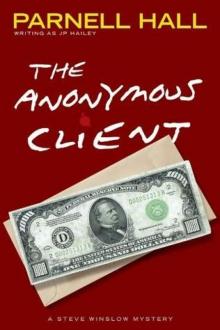 The Anonymous Client sw-2
The Anonymous Client sw-2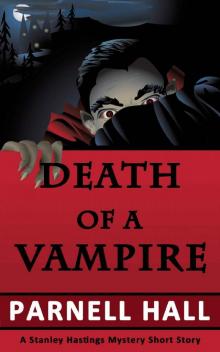 Death of a Vampire (Stanley Hastings Mystery, A Short Story)
Death of a Vampire (Stanley Hastings Mystery, A Short Story)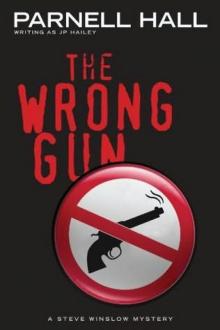 The Wrong Gun sw-5
The Wrong Gun sw-5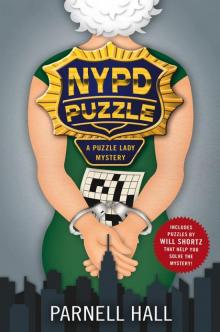 NYPD Puzzle
NYPD Puzzle 6 Juror
6 Juror 07-Shot
07-Shot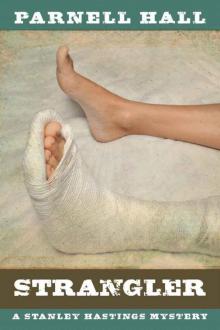 04-Strangler
04-Strangler 02-Murder
02-Murder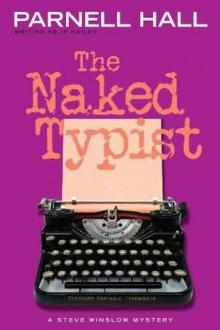 SW04 - The Naked Typist
SW04 - The Naked Typist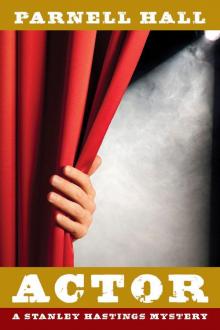 Actor
Actor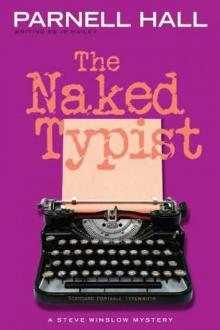 The Naked Typist sw-4
The Naked Typist sw-4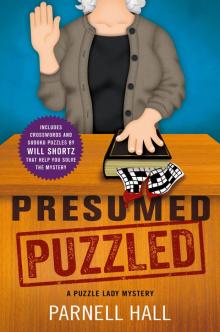 Presumed Puzzled
Presumed Puzzled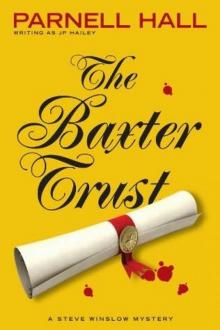 SW01 - The Baxter Trust
SW01 - The Baxter Trust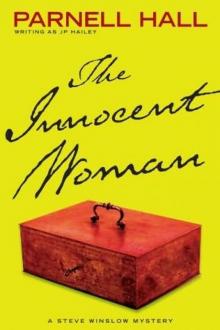 SW06 - The Innocent Woman
SW06 - The Innocent Woman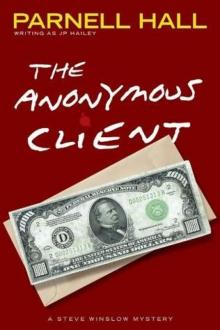 SW02 - The Anonymous Client
SW02 - The Anonymous Client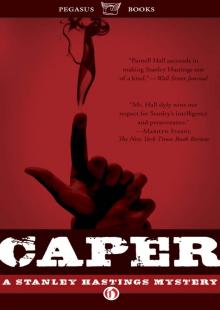 Caper
Caper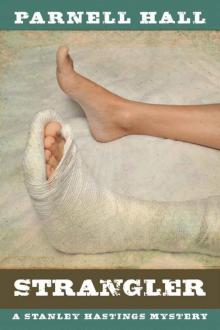 4 Strangler
4 Strangler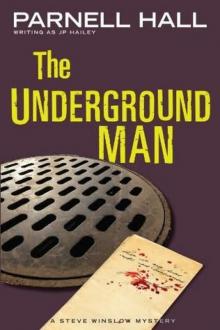 The Underground Man sw-3
The Underground Man sw-3 Manslaughter (Stanley Hastings Mystery, #15)
Manslaughter (Stanley Hastings Mystery, #15)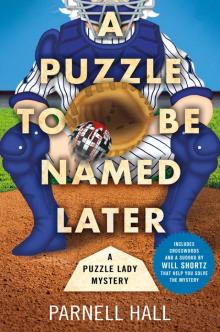 A Puzzle to Be Named Later--A Puzzle Lady Mystery
A Puzzle to Be Named Later--A Puzzle Lady Mystery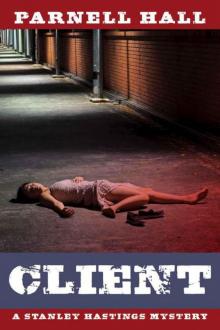 05-Client
05-Client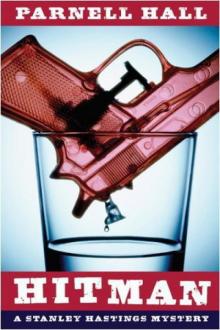 16 Hitman
16 Hitman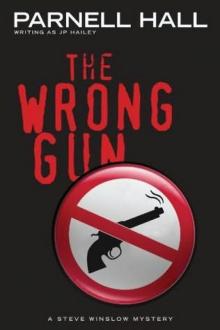 SW05 - The Wrong Gun
SW05 - The Wrong Gun 3 Favor
3 Favor Last Puzzle & Testament
Last Puzzle & Testament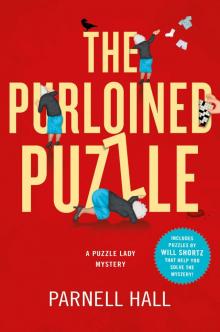 The Purloined Puzzle
The Purloined Puzzle 03-Favor
03-Favor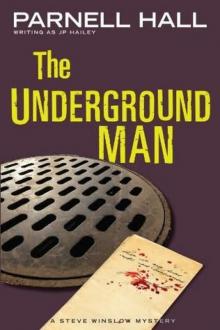 SW03 -The Underground Man
SW03 -The Underground Man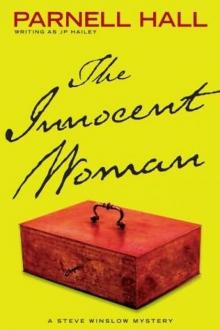 The Innocent Woman sw-6
The Innocent Woman sw-6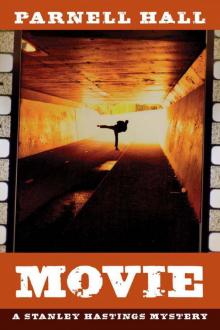 10 Movie
10 Movie 06-Juror
06-Juror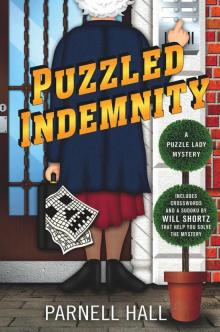 Puzzled Indemnity
Puzzled Indemnity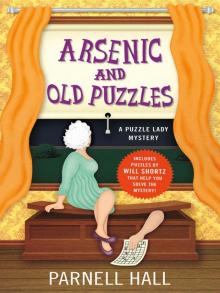 Arsenic and Old Puzzles
Arsenic and Old Puzzles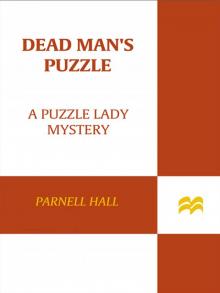 Dead Man's Puzzle
Dead Man's Puzzle Safari
Safari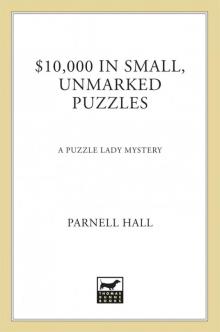 $10,000 in Small, Unmarked Puzzles
$10,000 in Small, Unmarked Puzzles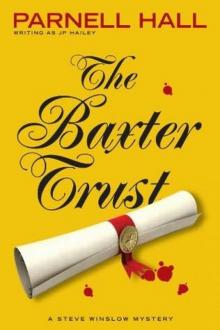 The Baxter Trust sw-1
The Baxter Trust sw-1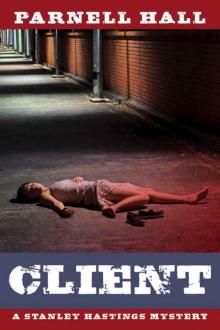 5 Client
5 Client Cozy (Stanley Hastings Mystery, #14)
Cozy (Stanley Hastings Mystery, #14)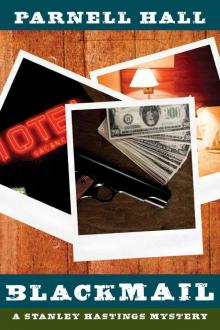 Blackmail
Blackmail A Puzzle in a Pear Tree
A Puzzle in a Pear Tree A Clue for the Puzzle Lady
A Clue for the Puzzle Lady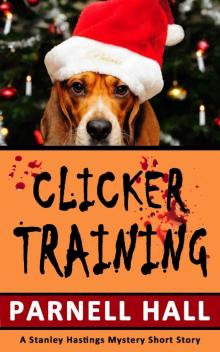 Clicker Training (Stanley Hastings Mystery, A Short Story)
Clicker Training (Stanley Hastings Mystery, A Short Story)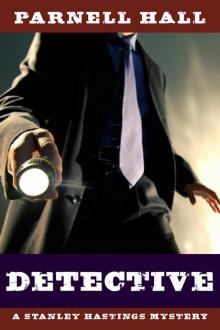 Detective (Stanley Hastings Mystery Book 1)
Detective (Stanley Hastings Mystery Book 1) 13 Suspense
13 Suspense